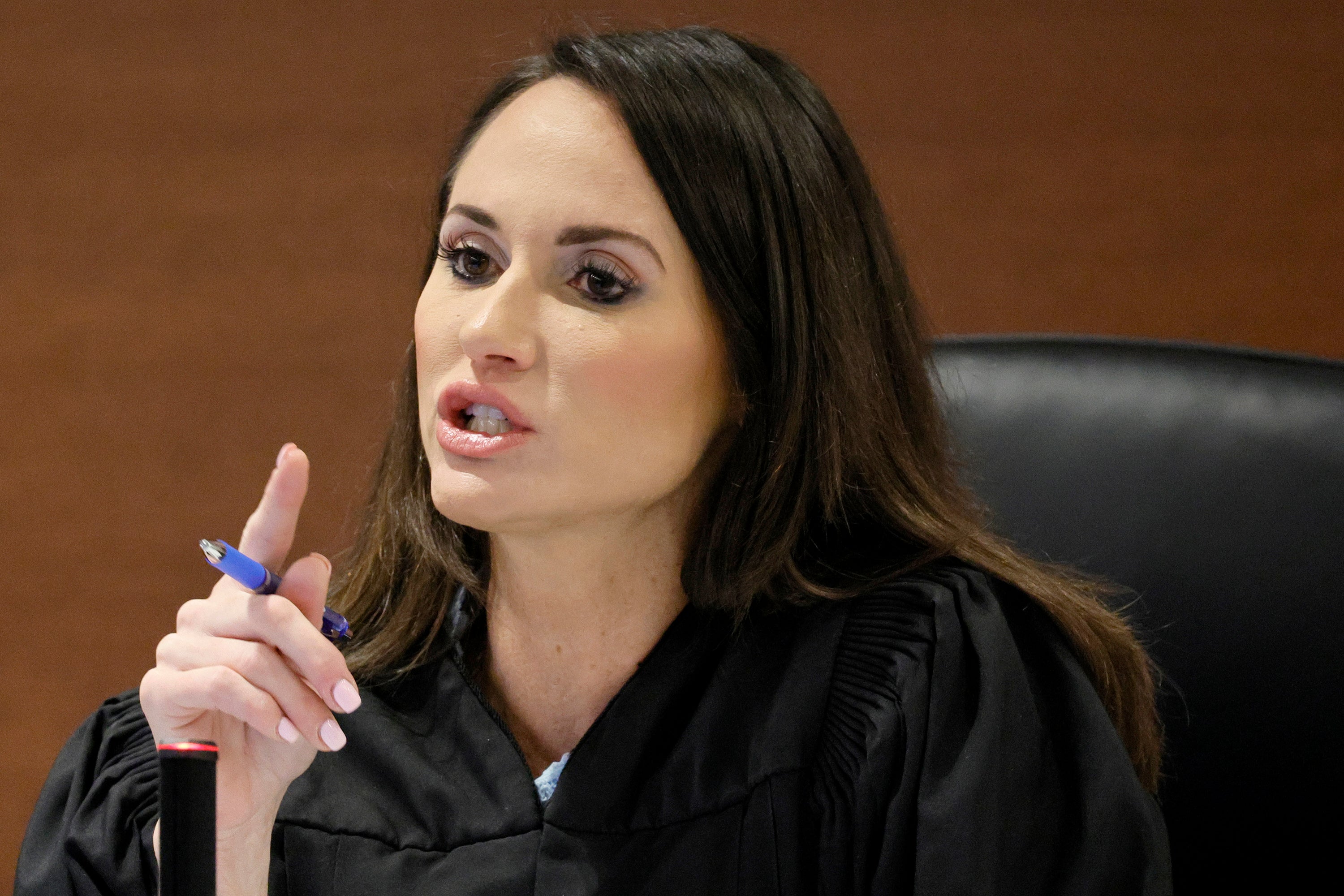Jury selection in school shooter's trial upended by T-shirt
Jury selection in the penalty trial of Florida school shooter Nikolas Cruz hit a new stumbling block when a potential juror wore a T-shirt potentially prejudicial to his case

Your support helps us to tell the story
From reproductive rights to climate change to Big Tech, The Independent is on the ground when the story is developing. Whether it's investigating the financials of Elon Musk's pro-Trump PAC or producing our latest documentary, 'The A Word', which shines a light on the American women fighting for reproductive rights, we know how important it is to parse out the facts from the messaging.
At such a critical moment in US history, we need reporters on the ground. Your donation allows us to keep sending journalists to speak to both sides of the story.
The Independent is trusted by Americans across the entire political spectrum. And unlike many other quality news outlets, we choose not to lock Americans out of our reporting and analysis with paywalls. We believe quality journalism should be available to everyone, paid for by those who can afford it.
Your support makes all the difference.The already slow slog of picking jurors in the penalty trial of Florida school shooter Nikolas Cruz hit a new stumbling block Monday when a potential juror's T-shirt honoring those killed and traumatized in the 2018 massacre resulted in the dismissal of her entire group of 10.
The woman, a 58-year-old high school teacher, was wearing a T-shirt in the burgundy and silver colors of Parkland's Marjory Stoneman Douglas High School that read “Teacher Strong.” Below that were two hashtags that were commonly found on T-shirts and bumper stickers throughout South Florida long after the Feb. 14, 2018, shooting: #msdstrong and #NeverAgain.
Cruz, 23, pleaded guilty in October to murdering 17 and wounding 17 others. The trial will decide whether he is sentenced to death or life in prison without parole.
The woman had been brought into the courtroom separately from the other nine potential jurors because she had written on her questionnaire that she has a medical condition that would prevent her from sitting for long stretches of time.
After that was discussed, Melisa McNeill, Cruz's lead public defender, asked her about her T-shirt and how much contact she had with the other jurors. The woman said she hadn't talked to the others, but they had all seen her shirt.
After the woman was asked to briefly leave the courtroom, McNeill told Circuit Judge Elizabeth Scherer that the entire group should be dismissed because the shirt possibly could have been prejudiced others against him. Prosecutors agreed.
Scherer initially balked, saying she hadn't noticed the T-shirt until McNeill brought it up and wondered if they other potential jurors would have, either. But she eventually agreed after both sides warned the T-shirt could become an issue on appeal if the jury sentences Cruz to death penalty. They argued it wasn't worth the risk of having to retry the case years from now.
“She obviously did that to get out of jury duty. It was irresponsible,” Scherer said.
The woman did not immediately respond to a Facebook message sent her by The Associated Press. The AP is not naming potential jurors in the case to protect their privacy.
Jury selection, which began seven weeks ago, is now in its second phase. During the first, the potential jurors were simply asked if they could serve from late June through September, the trial's scheduled duration. That process had a two-week delay after McNeill suffered an undisclosed illness.About 400 of almost 1,900 said they could serve and are now being questioned as part of Phase 2.
Those potential jurors, in groups of about 10, are being asked their opinion of the death penalty and whether they can put aside whatever knowledge they have of the shooting and be fair. To pass, they must say they could fairly consider both alternatives — death or a life sentence — for Cruz.
Including the group dismissed Monday, 26 of 80 potential jurors who have undergone the second screening have passed. Scherer is hoping to have 150 still eligible for the third phase, where they will be asked more questions and then pared down to 12 jurors and eight alternates. Either side can try to convince Scherer to dismiss a juror as being unfair to their case. Each side also will have at least 10 peremptory challenges, enabling them to dismiss a juror for any cause except race or gender.